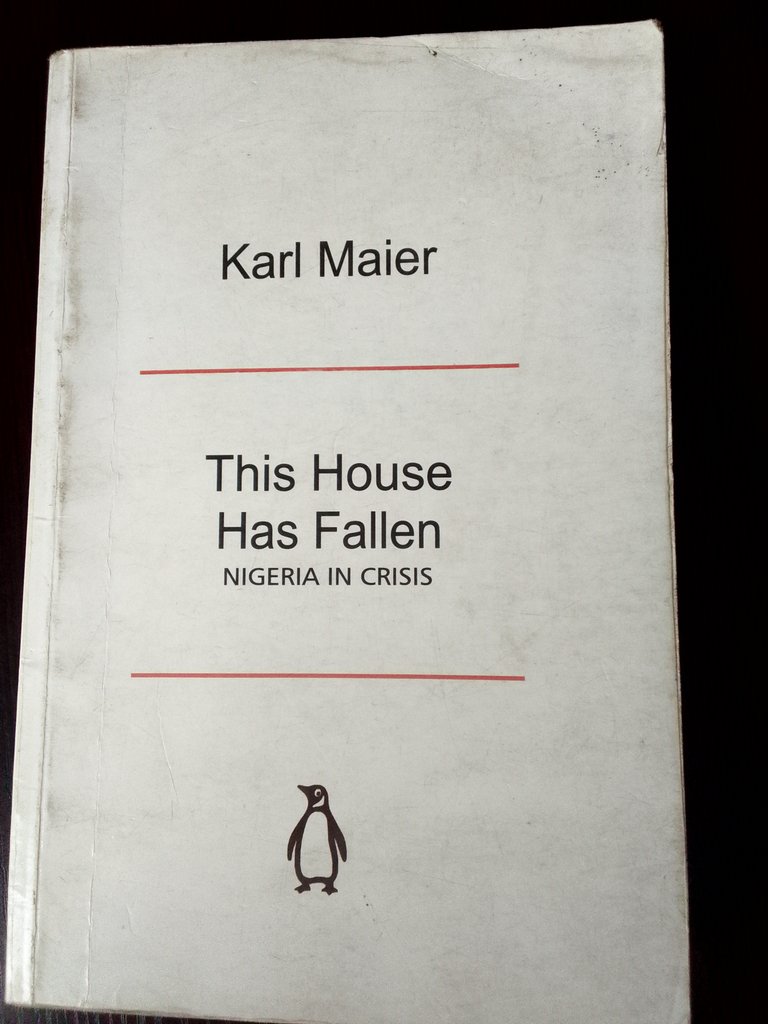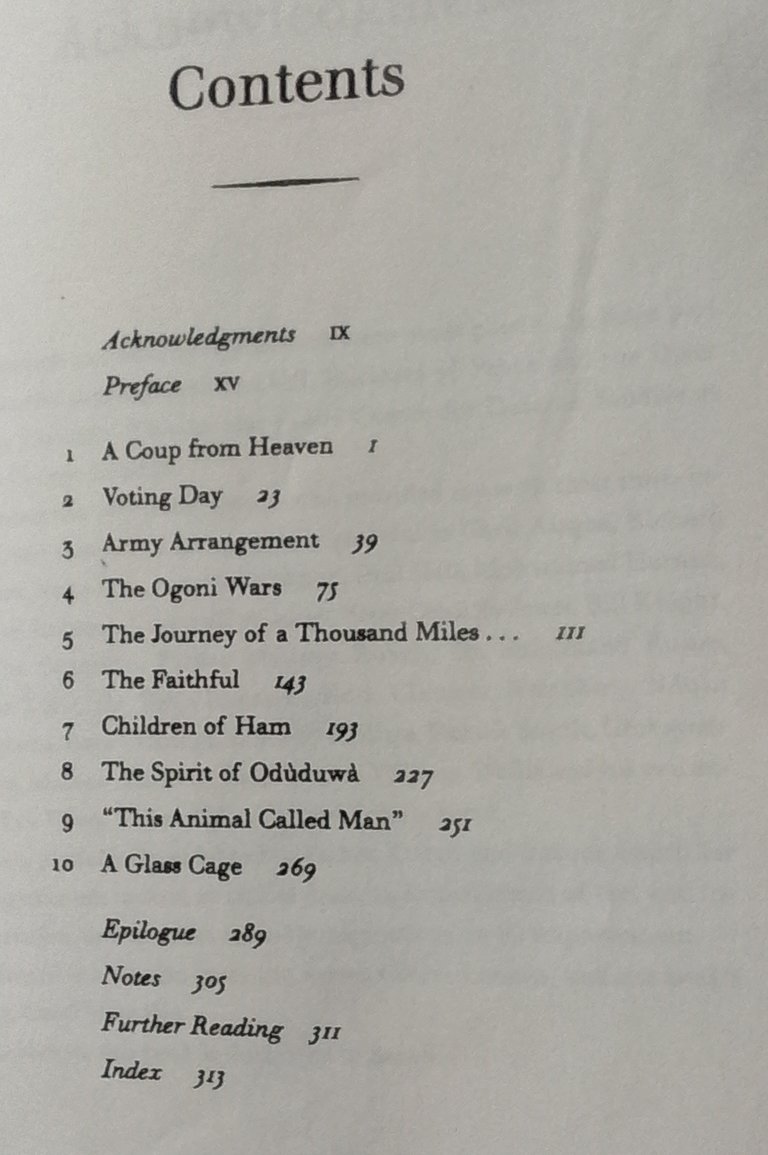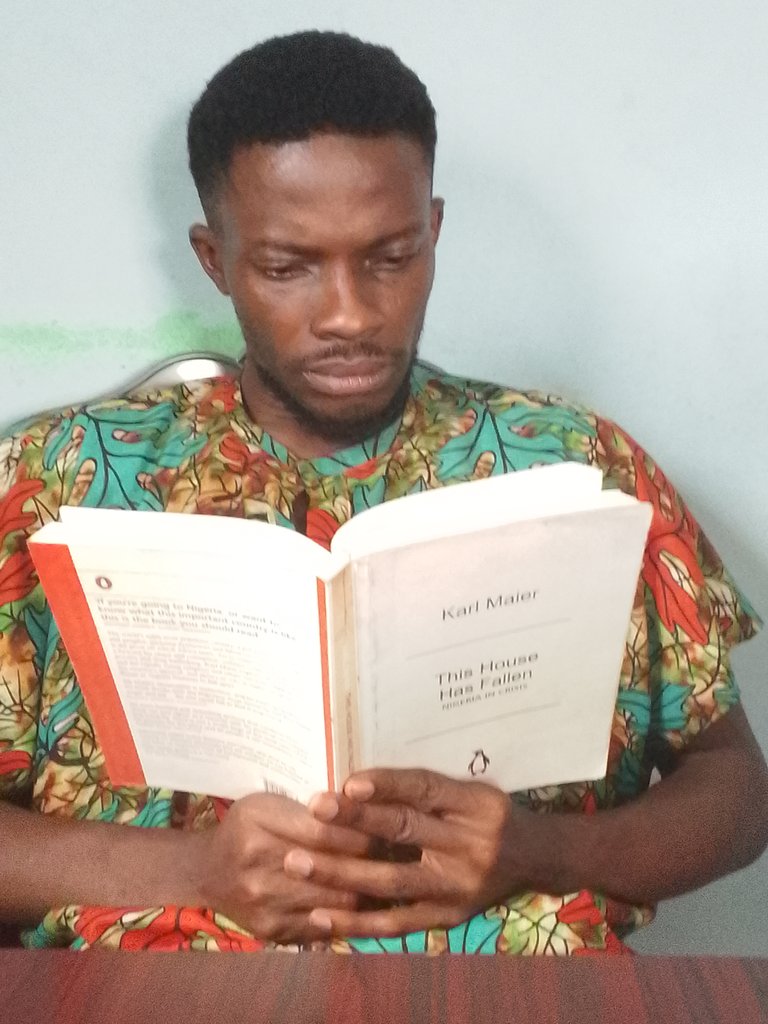Karl Maier “This House Has Fallen”. Book Review

Reading through Karl Maier’s work has been an interesting and inspiring journey. As a journalist of great repute, I wouldn't hesitate to see one of his works about Nigeria. I was intrigued and I couldn't hold back from purchasing the book and stayed glued to it from the beginning to the end. Karl is a European investigative journalist who has been to various African countries covering political happenings and crises. His pattern of reporting is different from others because of his storytelling style. He uses the storyline to pass his messages across as the event unfolds; hence, the book “This House Has Fallen” is no exception. The central theme of the book is about Nigeria. A country in West Africa. It covers myriads of factors contributing to the fall and underdevelopment of the country Nigeria. It is made up of ten chapters, and each chapter with a specific title is well structured to drive home the purpose of the book.

Chapter one is titled “A Coup from Heaven”. The chapter covered a host of many coups that have rocked the Nigerian political system. The author highlighted the first military coup in Nigeria in 1966, where a group of young military personnel in the rank of Majors staged a coup and ousted the then-president of Nigeria. Many other politicians of that time were also assassinated. The author traced the historical antecedent of Nigeria and all the various dispensations and events that unfolded including policies adopted by the various dispensations. He emphasized that some military personnel during their time were very corrupt and wasteful. For example, he stated that during Abacha’s regime, he spread millions of dollars around Africa, Europe and Washington to gain a sympathetic ear. The end of the chapter talks about the 1999 transition ceremony by which Chief Olusegun Obasanjo was handed over power as the Democratic president. It will interest you to note that the author wrote as an eyewitness to what happened.
Chapter two is titled “Voting Day”. Here, the author gives his eyewitness account of how elections are conducted in Nigeria. Precisely the February 1999 election. According to him, as a foreign observer, the election was full of malpractices like snatching of ballot boxes, violence, and arson. However, the author of the chapter carefully outlined the things that happened before election day. The different campaign strategies adopted by the various political parties as well as the political structures put in place by one political party to outsmart the other. By the end of the election, according to the author, Obasanjo won the election with some eighteen million votes.
In chapter three, the author wrote about his interviews and experiences with some military leaders in Nigeria. The heads of state featured are, Ibrahim Babangida, his wife Maryam, and others. Ibrahim Babangida’s history and exploits take over the chapter. He reminisced about his time as the head of state as well as his policies and relationships with other military icons in the country. The chapter also covers succinctly some policies of other heads of state. For example, he made mention of the Structural Adjustments Program (SAP). He titled the chapter “Army Arrangement”
The next chapter talks about “the Ogoni Wars”. In this chapter, the author has written extensively on the oil-rich community in the Niger Delta area of Nigeria. The key character here is Ken Saro Wiwa, a young and outspoken young man who, through their association, Movement for the Survival of Ogoni People (MOSOP), fought the multinational oil company and the Nigerian government for the degradation of their lands as a result of oil drilling and spillage. This led to his incarceration and subsequent annihilation.
The journey of a thousand miles is dedicated to the next chapter. Here, the author wrote about the Biafra civil war, which took away the lives of many Nigerians. He writes on the politics that led to the war as well as the precipice.
Chapter six is titled “The Faithful”. This chapter is about Northern Nigeria and the role of Islam in the body politics of Nigeria. The writer traced the origin of Islam to the conquering of the Hausas by Usman Dan Fodio and his Fulani faithful. It covers the religious crises between Muslims and Christians and how lives were wasted.

Spending time on this book has taught me lots of lessons about the history of Nigeria and other factors that undermine the growth and development of the country. Also, I have been exposed to the history of Nigeria, the oil, the Ogoni People, the Yoruba race and other aspects of the country. The book is rich in ideas and voluminous and it's a useful tool for journalism and for students and teachers.